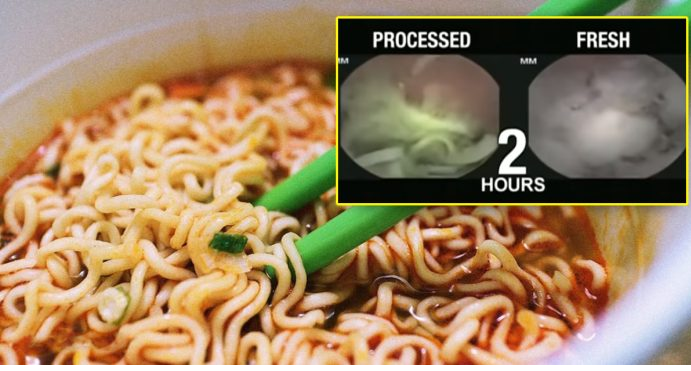Instant noodles have become the go-to choice for many, especially college students seeking a quick and budget-friendly meal. While the ease of preparation, affordability, and diverse flavor options make them enticing, the dark side of instant ramen poses serious health concerns that may surprise you.
The Nutritional Pitfalls of Instant Noodles
Beyond the taste and momentary joy associated with our meals, it’s crucial to recognize that our diet serves as the fuel for our bodies. The U.S. Department of Health and Human Services emphasizes the link between a poor diet and significant health risks, including heart disease, hypertension, type 2 diabetes, osteoporosis, and certain types of cancer. Opting for nutritious food is an investment in our well-being, as opposed to the potential costs incurred from dealing with health issues.
Instant ramen noodles, unfortunately, fall short in meeting these health criteria. Known for their alarmingly high sodium content, with some brands reaching 72% of the daily recommended intake, these noodles are made from refined grain flour and fried in palm oil before packaging. Despite a smattering of dehydrated vegetables, instant ramen provides little to no fiber, protein, essential vitamins, or antioxidants, earning them the label of ’empty calories.’
The Health Risks of a Ramen-Heavy Diet
To shed light on the impact of a ramen-heavy diet, a 2014 study conducted by researchers at the Harvard School of Public Health focused on South Korean individuals, where ramen is a dietary staple. The study, published in the ‘Journal of Nutrition,’ revealed that women consuming ramen twice weekly exhibited a 6% higher risk of developing metabolic syndrome. This condition encompasses elevated levels of glucose, cholesterol, and blood pressure, along with weight gain, increasing the likelihood of diabetes, heart disease, and stroke.
The Role of High Sodium Content
One of the primary concerns with instant noodles is their high sodium content. Consuming excessive sodium can lead to hypertension (high blood pressure), which is a major risk factor for cardiovascular diseases. Moreover, high sodium intake can cause water retention, leading to bloating and putting additional strain on the heart and kidneys. For individuals with pre-existing health conditions, these effects can be even more pronounced.
Nutritional Deficiencies and Long-Term Impact
The lack of essential nutrients in instant noodles can also contribute to various health issues over time. Diets low in fiber and essential vitamins can impair digestive health and weaken the immune system, making the body more susceptible to infections and diseases. Additionally, the absence of sufficient protein in these meals can affect muscle maintenance and repair, crucial for overall physical health.
Recommendations for Healthier Alternatives
Michelle Dudash, a Cordon Bleu-certified chef and author of ‘Clean Eating for Busy Families,’ advises opting for healthier alternatives. Instead of relying on instant ramen, she suggests choosing soups rich in vegetables, whole grains, and lean protein like beans or chicken. For those craving Asian noodles, Dudash recommends boiling brown rice or buckwheat noodles, topping them with reduced-sodium or homemade broth, and adding sautéed vegetables and edamame for a more wholesome meal.
Practical Tips for a Healthier Diet
Transitioning to a healthier diet doesn’t have to be daunting. Here are some practical tips:
- Plan Ahead: Preparing meals in advance can help you avoid the temptation of quick, unhealthy options. Batch-cook soups or stews that can be easily reheated.
- Incorporate More Vegetables: Adding fresh or frozen vegetables to your meals can enhance their nutritional value. Leafy greens, carrots, and bell peppers are excellent choices.
- Choose Whole Grains: Opt for whole grains like brown rice, quinoa, or whole-wheat pasta instead of refined grains. They offer more fiber and nutrients.
- Stay Hydrated: Drinking plenty of water throughout the day can help manage hunger and improve overall health.
- Read Labels: Pay attention to the nutritional information on packaged foods. Look for options with lower sodium and no added sugars.
Conclusion :
In conclusion, the convenience of instant ramen comes at a hidden cost to your health. Making informed choices about your diet is a crucial step in safeguarding your well-being. So, next time you reach for that instant ramen packet, consider the long-term impact on your health and explore healthier alternatives that nourish your body and promote overall wellness. Embracing a diet rich in whole foods, lean proteins, and fresh vegetables can pave the way for a healthier, more vibrant life.

images source : gt good times










